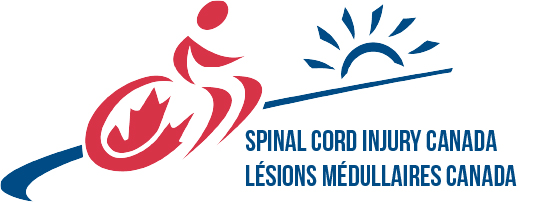SCI Canada's Position on the Proposed Canada Disability Benefit - Bill C-22

Why Bill C-22 is Important
Bill C-22 is a bill to end poverty among people with disabilities. Although many people with spinal cord injuries receive payments from settlements and insurance, these financial situations are not available to everyone. Over one million people with disabilities in Canada live in poverty.
Overview
Bill C-22 has made its way through the House of Commons. The Senate of Canada is currently reviewing it and considering changes to the draft legislation.
SCI Canada, along with many other organizations and people with disabilities, wants Bill C-22 passed before the current session of Parliament ends. The estimation is that the House will rise this June 2023.
SCI Canada has been working with nine other disabilities-related organizations. We have considered how we can get the proposed Canada Disability Benefit into law as soon as possible.
Time is of the essence. We first heard about the benefit in the 2020 Throne Speech. We are now well into 2023. People with disabilities living in poverty have waited long enough. We lost this bill the first time it was introduced in the House of Commons when the most recent federal election was called. We do not want to lose this bill again and be forced to start all over a third time.
Regulations
We know that there are many details to be worked out before funding can flow to people with disabilities living in poverty. We believe these details are best clarified by creating regulations after Bill C-22 becomes law. Regulations are the rules to be followed for sending the benefit to people who need it.
Changes already made in the House of Commons give many of us in the disability community confidence that the government will fast-track the process of creating regulations. We expect that the government will meaningfully engage the disability community in the co-creation of regulations. This form of engagement can ensure an intersectional, cross-disability and pan-Canadian approach that is so necessary.
An ideal approach would ensure that together we make sure the proposed Canada Disability Benefit truly ends poverty for people with disabilities in Canada.
Other Views
We respect others in our community who call for Bill C-22 to be amended further by the Senate to include specific details. Certainly, changes to the bill would make it stronger and more effective.
Our position is that these details will best be determined using a co-creation process with a broad range of people in the disability community. This meaningful participation will truly honour the “Nothing Without Us” commitment embodied in the Accessible Canada Act.
Introducing too many changes now to Bill C-22 on details such as amount, eligibility and coordination with provinces, territories and private insurance companies will require extensive research and negotiations. This will take time and could slow down the approval process. It could even result in losing Bill C-22 altogether because we may run out of time in Parliament.
SCI Canada has asked the Senate to fast-track approval of Bill C-22 so it can become law as soon as possible. This position is shared by many organizations and individuals across Canada as stated in a letter sent to every senator on March 21, 2023. It was signed by over 1,000 people.
Why We Don’t Want More Details in Bill C-22 Right Now
- We want Bill C-22 to pass quickly through the Senate. The opportunity is now. We can get the framework legislation enacted into law. Once the bill is law, any future government will have to abide by it. If the law does not exist because it is still being discussed at the bill stage, a future government could decide not to move it forward into law.
- ·The quicker Bill C-22 becomes law, the sooner we can get to work on the details of the regulations. The quicker people with disabilities will not have to face poverty.
- Regulations will determine the details and the design of the benefit. We want a commitment that the disability community will be at the table and fully involved in writing regulations.
- We expect the federal government to uphold the principle of “Nothing about us, without us”. The government has committed to this, and as 22% of the population, we have the power to hold them to it.
- Existing federal, provincial, and territorial programs will need to be reviewed and studied carefully to make sure all programs work together so there are no reductions to existing benefits and supports. Multiple programs must work well for people with disabilities and not offset each other. All levels of government must work together.
- Creating regulations after Bill C-22 passes into law will make it possible for input from the disability community to influence what is in the regulations. This process provides time for the disability community to come together with the government and agree on the details of the benefit.
Change Considerations
Here is a list of some of the details people want in Bill C-22 right now before it becomes law.
Age Requirement
Bill C-22 targets working-age people. Some people want the age requirement of the bill to be decided at the regulations stage instead of having it written right into the bill now. Some children and seniors with disabilities live in poverty. Disability expenses can push people into poverty.
Past governments have prioritized the reduction of poverty for seniors with Old Age Security and for children with the Canada Child Benefit. Although the benefits and supports for seniors and children are not perfect, we see the proposed Canada Disability Benefit as an opportunity to reduce poverty for working-age Canadians with disabilities. There is currently no national disability benefit for this age group of people with disabilities living in poverty.
Amount
To date, Bill C-22 does not indicate an amount for the benefit. Some people want the amount of the payment written right into the bill to ensure the proposed Canada Disability Benefit does indeed lift people out of poverty.
Deciding on the amount of the benefit must provide enough time for the disability community to come together and decide with the government what the amount of the benefit should be. The amount may need to be different depending on where a person lives and the extra costs of living with different kinds of disabilities. Making new changes to Bill C-22 now could slow down the process and we could miss this opportunity to have the proposed legislation become a new law.
Eligibility Criteria
Some organizations and people want the details about eligibility to be decided before the bill becomes law.
Discussions about eligibility, the application process, amounts, and appeal processes are better left to the regulation process where the disability community can have a seat at the table and be involved in the decision-making. We need more time to engage people in the disability community to make sure the benefit is strong and effective.
The House of Commons amended Bill C-22 which gave more clarity around eligibility:
- The definition of disability now will have the same meaning as defined in the Accessible Canada Act.
- The amount of the benefit must take into consideration the Official Poverty Line.
- The benefit must be indexed to inflation.
Clawbacks or Reducing Benefits Provided by Others
There is concern that the Canada Disability Benefit will be reduced by the provinces, territories and private insurance companies. There is a worry that payments will never reach the people who are entitled to the benefit. Therefore, some people think the agreements between the provinces, territories and federal government should be figured out and written into the bill.
We want to prevent clawbacks on the benefit by provinces, territories, and private insurance companies. The best way to prevent this harm is to negotiate with provinces, territories, and private insurance companies. Existing programs will need to be reviewed and studied carefully to make sure all benefits will work together. Passing Bill C-22 quickly will allow these discussions to begin formally.
Timelines
Presently, the only reference to time in Bill C-22 refers to the Minister providing an update after the first year. There is concern that the update may only say that the regulations are being developed.
We recognize that the benefit will not happen overnight. It will take time for the regulations to be decided on and for systems to be in place to deliver the benefit. We recognize concerns about the lack of timelines in Bill C-22. We want to ensure that all parties take the time needed to create the best benefit possible. But we agree that there should be a timeline established. We would like the regulations finished in one year’s time after the law comes into force.
We want the law passes by June 2023
We want the regulations set and the benefit to be sent to people by the end of 2024.
What You Can Do
- Talk to senators right now while they are still looking at Bill C-22. https://sencanada.ca/en/senators/
- Talk to your Member of Parliament to encourage them to pass Bill C-22. https://www.ourcommons.ca/Members/en/search
- Talk to your Member of the Provincial Parliament or Member of the Legislative Assembly and ask them to work with the Federal Government. Ensure their government will not claw back benefits in your province or territory.
